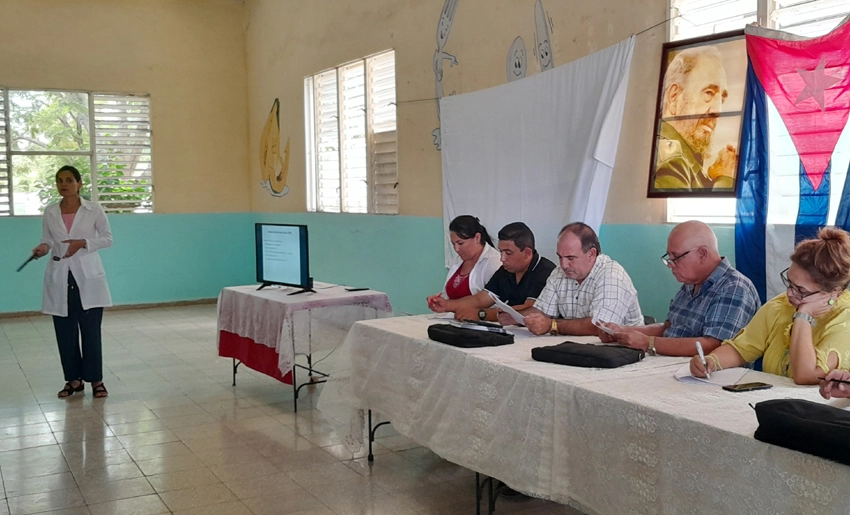The first of 80 plenary sessions of the Maternal and Child Care Program (PAMI). Planned for the province of Holguin took place at the Seremos como el Che (We Will Be Like Che) boarding school in the Alcides Pino Bermúdez health área. As part of the health sector’s strategies to improve this program’s indicators. Which are key to the results of the National Health System.
At the event, Dr. Lianet García Ulloa, head of Basic Working Group No. 2 in the aforementioned health area. Presented the results obtained this year. She also addressed the behavior of the female population of childbearing age. As well as the importance of working on the indicators and problems that most impact this level. Such as teenage pregnancy, high-risk pregnant women, children with chronic diseases, and high-risk infants.
Immediate actions were taken to provide differentiated care to pregnant and nursing women with chronic illnesses or those living in vulnerable situations, as they are a fundamental part of the population at social risk. To this end, the health sector, in coordination with intersectoral work, which encompasses approximately 29 organizations. Must implement support actions to achieve more favorable health outcomes and indicators.
Participating in this meeting were Bárbara Díaz Ramírez, a member of the Provincial Bureau of the Communist Party of Cuba. Dr. Miguel Colás Louit, Director of Medical Assistance at the General Directorate of Health. George Augusto Velázquez Zúñiga, Ph.D., Dean of the Faculty of Medical Sciences of Holguin. And the highest political, governmental, and municipal health authorities.
This initiative, which analyzes problems and specific cases that may pose risks from the Primary Health Care perspective, is a way to provide differentiated care, intersectoral, and community assistance to those who need it most, given their living conditions.
- The 4th edition of the Master’s Program in Natural Medicine will begin in Holguin - 16 de January de 2026
- Blood Bank Inaugurated at Holguin Military Hospital - 15 de January de 2026
- Holguin Cancer Center Plans to Incorporate Endoscopic Surgery in Urology - 14 de January de 2026

